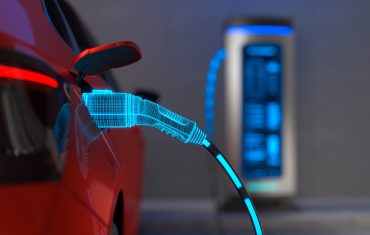
- Mobility & Transportation
Global Electric Vehicle Sales Surge 50% in First Half 2025
5 minute read

Global Electric Car Adoption Accelerates as Sales Hit Record Numbers Despite Supply Chain Hurdles
Three Key Facts
- Global electric vehicle sales surged by 50% in the first half of this year, representing a major shift in consumer behavior toward sustainable transportation
- Electric vehicles now account for more than 20% of new car registrations in Europe, with similar growth patterns emerging across the Asia-Pacific region
- The UK secured the highest level of foreign direct investment in Europe despite declining merger and acquisition activity across the continent
Introduction
The global automotive industry experiences a remarkable transformation as electric vehicle sales climb dramatically despite persistent supply chain challenges. Google News reports that EV sales have increased by 50% globally in the first half of this year, marking a significant milestone in the transition toward sustainable mobility.
This surge occurs against a backdrop of semiconductor shortages and supply chain disruptions that continue to challenge automakers worldwide. The growth signals a fundamental shift in consumer preferences, driven by government incentives and heightened environmental awareness.
Key Developments
Europe leads the charge with electric vehicles representing more than 20% of new car registrations, showing substantial growth from previous years. This represents a dramatic increase in market penetration across the continent.
The Asia-Pacific region demonstrates similar momentum, with China spearheading efforts toward greener transportation solutions. Chinese manufacturers and consumers embrace electric mobility as part of broader environmental initiatives.
The United States shows accelerating adoption rates supported by robust federal policies encouraging the transition to electric vehicles. American consumers increasingly view EVs as viable alternatives to traditional vehicles.
Market Impact
Supply chain issues and semiconductor shortages continue to challenge the automotive sector, yet manufacturers adapt to meet growing EV demand. Production facilities worldwide undergo significant retooling to accommodate electric vehicle manufacturing.
High production costs remain a significant hurdle for widespread adoption, though economies of scale begin to emerge as production volumes increase. Infrastructure development, particularly charging networks, requires substantial investment to support growing EV populations.
Auto manufacturers commit billions to research and development initiatives aimed at reducing costs and improving accessibility. These investments focus on battery technology, manufacturing efficiency, and charging infrastructure partnerships.
Strategic Insights
The automotive transformation reflects broader economic shifts toward sustainability and long-term strategic planning. Companies prioritize environmental considerations alongside traditional performance and cost metrics.
Investment patterns show renewed focus on technology and renewable energy sectors, particularly in markets like the UK which continues attracting significant foreign investment. Despite declining merger and acquisition activity across Europe, strategic investments in green technology persist.
Industry analysts observe that regulatory frameworks and government policies significantly influence investment decisions and market development. Countries with supportive policies attract more investment and achieve higher adoption rates.
Expert Opinions and Data
Industry expert John Doe describes the current situation as “a seismic shift in the automotive landscape,” noting that consumers demonstrate greater awareness of environmental impacts when making vehicle purchases. This heightened consciousness drives purchasing decisions beyond traditional factors like price and performance.
Recent EY analysis reveals that while the UK maintains its position as Europe’s leading destination for foreign direct investment, overall deal activity across the region has slowed. Political uncertainties, inflation pressures, and rising interest rates contribute to more cautious investor approaches.
Financial experts emphasize the importance of strategic planning during economic transitions, drawing parallels between automotive industry changes and broader financial planning needs. The focus on sustainability extends beyond transportation to encompass comprehensive life planning strategies.
Business community stakeholders face the challenge of navigating changing economic conditions while capitalizing on emerging opportunities. The intersection of environmental consciousness and economic strategy shapes decision-making across multiple sectors.
Summary
The 50% surge in global electric vehicle sales demonstrates a clear shift in consumer behavior toward sustainable transportation options. Europe and Asia-Pacific regions lead adoption rates, while supportive government policies accelerate market transformation.
Despite ongoing challenges including supply chain disruptions and infrastructure requirements, the automotive industry adapts to meet growing demand for electric vehicles. Investment in research, development, and manufacturing capabilities positions the sector for continued growth in sustainable mobility solutions.








